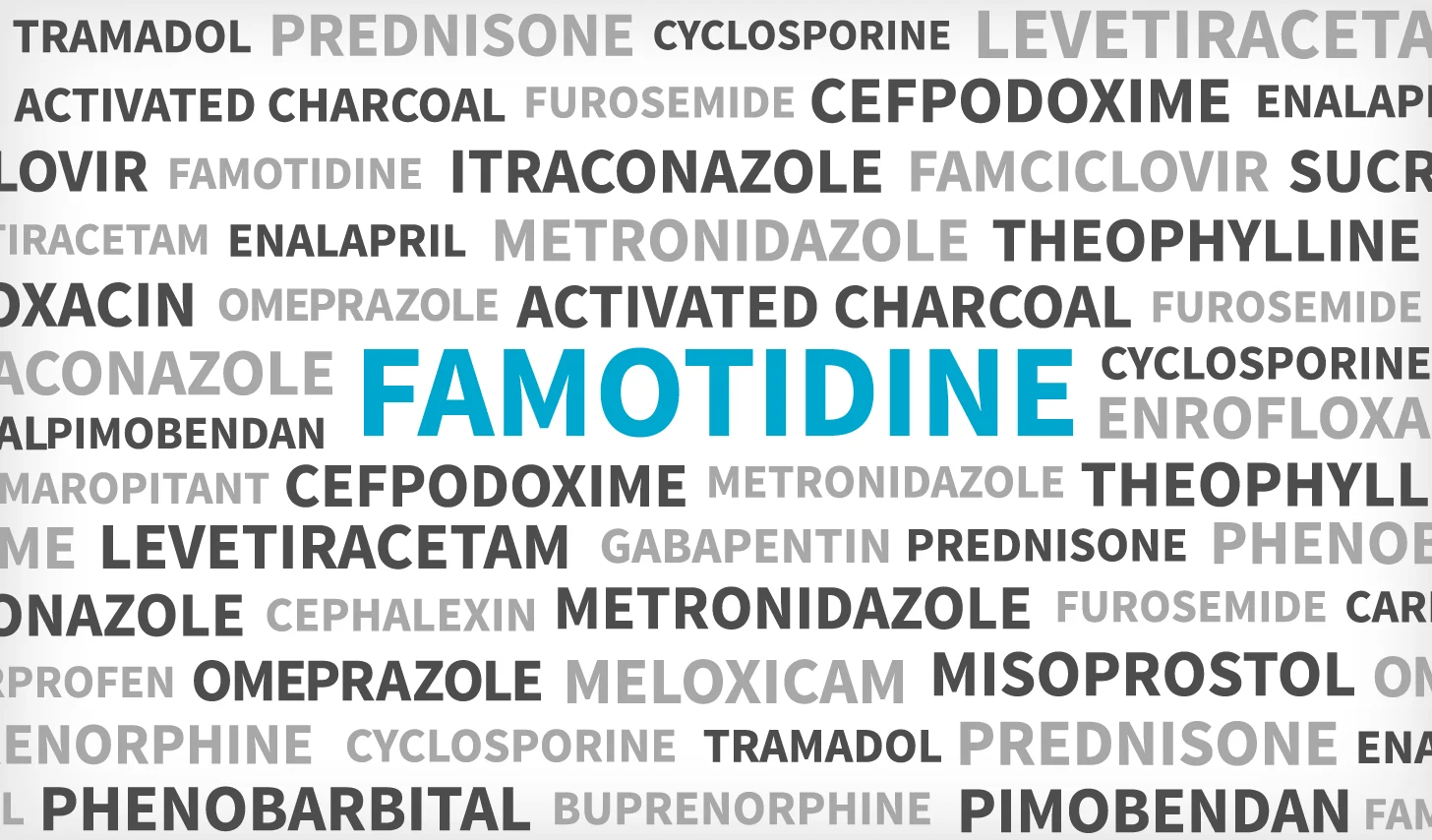Famotidine

H2-Receptor Antagonist (Systemic Drug)
Prescriber Highlights
Used to reduce gastric acid production
Recent studies in dogs found famotidine was inferior to omeprazole for increasing gastric pH
Uses, Indications
Used for treatment and/or prophylaxis of gastric and duodenal ulcers, uremic gastritis, stress-related or drug-induced erosive gastritis, esophagitis, duodenal gastric reflux, and esophageal reflux
Contraindications, Precautions, Warnings
Contraindications
Patients with hypersensitivity to famotidine
Precautions
Geriatric patients and patients with significantly impaired hepatic or renal function or severe cardiac disease
Warnings
Rapid IV infusion may cause bradycardia
Side Effects
Relatively safe; adverse effects are minimal
GI side effects (eg, anorexia, vomiting, diarrhea), headaches, and dry mouth or skin have been noted in humans
Rarely, agranulocytosis has been noted when famotidine is used concomitantly with other drugs that can cause bone marrow depression
Drug Interactions
Famotidine raises gastric pH and may decrease absorption of azole antifungals (eg, ketoconazole, itraconazole, fluconazole)
Famotidine may decrease absorption of cefpodoxime and cefuroxime; giving with food may alleviate this effect
Famotidine may decrease cyclosporine concentrations
Famotidine may decrease absorption of oral iron salts; separate administration by at least 1 hour
Unlike cimetidine or ranitidine, famotidine does not appear to inhibit hepatic cytochrome P450 enzymes, and dosage adjustments of other drugs (eg, warfarin, theophylline) metabolized by this pathway are usually not required
Monitoring
Clinical efficacy; monitor decreases in clinical signs and examine endoscopically for persistent ulceration; monitor feces for blood
Adverse effects, if noted
Client Information
Doses are often administered 1 to 2 times per day; clinical signs may reoccur if doses are missed
Works best if given before the first meal of the day
If GI signs are noted, give with food
Dosage Forms
No veterinary-labeled products are available
Human-labeled products available for extra-label use include:
Famotidine oral tablets and gelcaps: 10 mg, 20 mg, 40 mg
Famotidine injection: 10 mg/mL
—Compiled and summarized from Plumb’s Veterinary Drugs by Shannon Palermo, VMD
Information about this drug was adapted from Plumb’s Veterinary Drugs. Further details and more therapeutics can be found with a subscription at plumbsveterinarydrugs.com